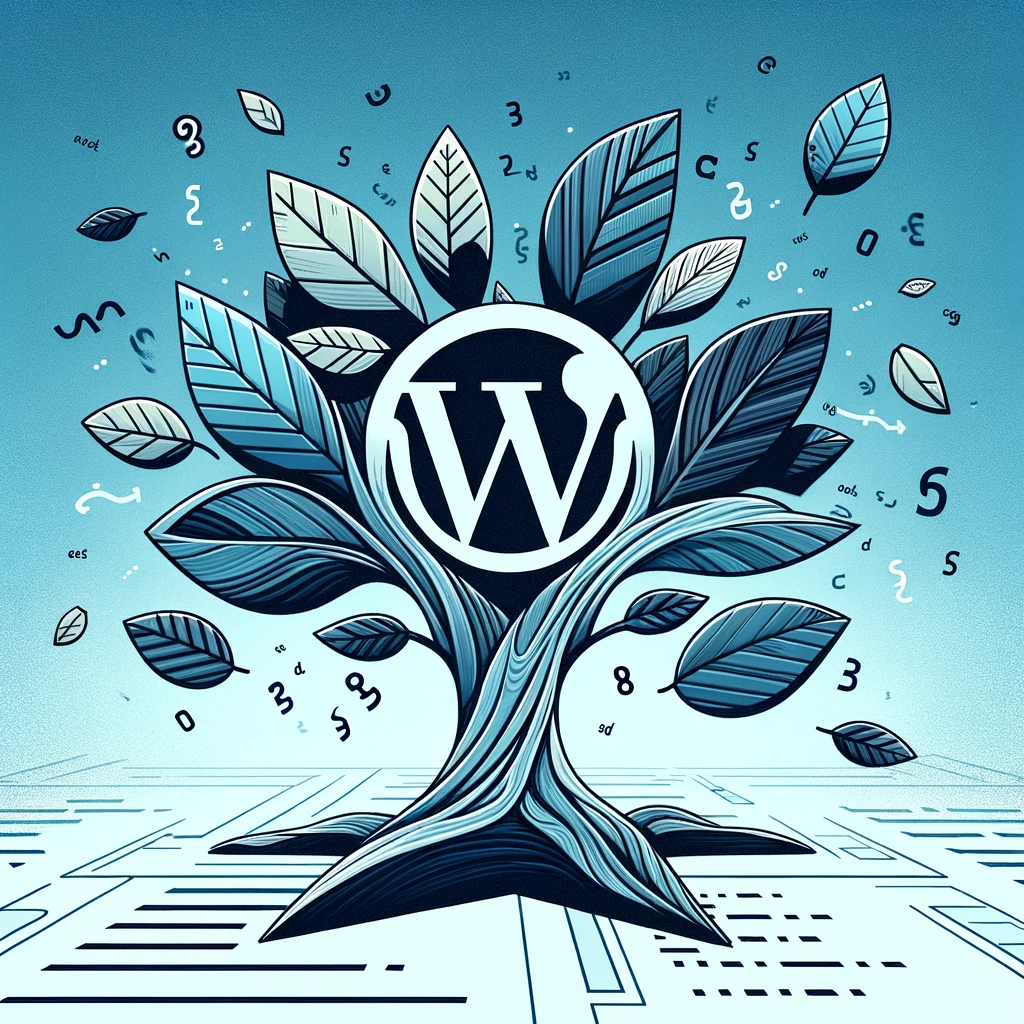As a WordPress developer who began his career tinkering with blog layouts and eventually moved to more complex projects through UpWork, I’ve had a front-row seat to the platform’s remarkable evolution. From its humble beginnings as a blogging tool, WordPress has grown into a comprehensive web development powerhouse, reflecting the diverse needs of the digital world, much like the varied projects I encounter on UpWork.
WordPress: The Early Days of Blogging
In 2003, WordPress emerged as a user-friendly platform for bloggers. In my early freelancing days on UpWork, many of my projects involved setting up and customising WordPress blogs. This era was about simplicity and ease of use, catering to individuals eager to share their stories online.
Transitioning into a Versatile CMS
Gradually, WordPress expanded its capabilities, introducing themes and plugins, transforming it into a full-fledged CMS. This evolution mirrored my own professional growth on UpWork, as I started taking on more diverse projects, from designing simple blogs to developing complex, feature-rich websites.
The Plugin Revolution and Its Impact
The introduction of plugins was a game-changer. As a freelancer, I began to see a shift in client requests on UpWork – from basic blog setups to developing custom plugins, enhancing website functionality. This period marked WordPress’s move from a blogging platform to a solution for intricate web development needs.
WordPress Meets eCommerce: A New Frontier
With WooCommerce, WordPress ventured into the eCommerce space. This transition was significant for me as a freelancer on UpWork. The demand for online store development skyrocketed, and I found myself working on increasingly sophisticated WooCommerce projects, helping businesses establish their online presence.
Gutenberg: Embracing Modern Web Design
The introduction of the Gutenberg editor was a step towards modern web design. This new feature aligned perfectly with the type of projects I encountered on UpWork, where clients sought more visually appealing and interactive websites. Learning and mastering Gutenberg became crucial for staying relevant in the freelance market.
The Role of Community in WordPress’s Growth
WordPress’s journey is also a story of community and collaboration. Through my interactions on UpWork and WordPress forums, I’ve witnessed how community contributions have shaped the platform. This collaborative spirit is a cornerstone of WordPress’s success and mirrors the communal ethos prevalent in freelance networks like UpWork.
Today’s WordPress Through a Freelancer’s Lens
Today, WordPress is not just a blogging tool; it’s a versatile platform capable of powering complex websites and applications. As a freelancer on UpWork, I’ve seen a steady increase in demand for diverse WordPress-related projects, from custom theme development to performance optimisation.
WordPress’s evolution from a simple blogging platform to a versatile web development tool parallels the journey many freelancers, including myself, have experienced on platforms like UpWork. This synergy between a growing digital platform and the evolving needs of the freelance market underscores the dynamic nature of web development, reflecting the adaptability and versatility that both WordPress and freelance developers bring to the digital table.
FAQ’s
-
What was WordPress originally created for?
WordPress was originally created as a user-friendly blogging platform in 2003, designed for individuals eager to share their stories online.
-
How has WordPress evolved since 2003?
Since its inception, WordPress has transformed into a comprehensive web development platform, now offering a full-fledged CMS with themes and plugins for creating complex websites.
-
What role did themes play in WordPress’s evolution?
Themes allowed users and developers to change the look and functionality of a WordPress site without altering the core code, significantly expanding its versatility.
-
How did plugins change the WordPress ecosystem?
Plugins introduced the ability to extend and add to the functionality of WordPress sites, leading to its widespread use for a variety of online platforms.
-
What impact did WooCommerce have on WordPress?
WooCommerce enabled WordPress to handle e-commerce functionalities, allowing users to create and manage online stores directly within the platform.
-
Why is the Gutenberg editor significant in WordPress’s history?
The Gutenberg editor introduced a modern block-based approach to content creation in WordPress, making site building more accessible and visually intuitive.
-
How did working with WordPress on UpWork enhance your skills?
Working on diverse WordPress projects on UpWork offered real-world experience in various aspects of web development, from custom coding to theme customization.
-
Can WordPress be used for more than blogging?
Absolutely, WordPress is now used for a wide range of websites, including business sites, portfolios, forums, e-commerce sites, and even web applications.
-
What is a CMS and does WordPress qualify as one?
A CMS, or Content Management System, is software that helps users create, manage, and modify content on a website without the need for specialized technical knowledge. WordPress is one of the most popular CMS platforms available today.
-
How do plugins contribute to WordPress’s functionality?
Plugins are like add-ons or extensions that provide additional features and capabilities to a WordPress site, ranging from SEO tools to security enhancements.
-
What types of e-commerce projects can you develop with WordPress?
With WordPress and WooCommerce, you can develop various e-commerce projects, including online storefronts, subscription services, and even digital product sales platforms.
-
What are the advantages of using Gutenberg for web design?
Gutenberg offers a user-friendly interface with a focus on media-rich pages and posts, providing a more streamlined experience for building modern, interactive websites.
-
How does the WordPress community influence its growth?
The WordPress community, through forums, contributions, and collaborations, drives the platform’s growth by creating a vast resource of themes, plugins, and tutorials.
-
What is the future outlook for WordPress as a web development tool?
WordPress continues to grow and adapt, with ongoing updates that focus on security, user experience, and cutting-edge features, ensuring its place as a top web development tool.
-
How can freelancers leverage WordPress for diverse projects?
Freelancers can leverage WordPress’s flexibility and scalability to meet a wide range of client needs, from simple informational sites to complex e-commerce solutions.
-
Is WordPress suitable for non-technical users?
Yes, WordPress is designed to be user-friendly for non-technical users, with an intuitive dashboard and visual editors like Gutenberg.
-
What makes WordPress a popular choice for freelancers on UpWork?
WordPress’s ease of use, combined with its flexibility and the abundance of available projects, makes it a popular choice for freelancers on platforms like UpWork.
-
How does WordPress keep up with the latest web technologies?
WordPress keeps up with the latest web technologies through regular updates, community-contributed features, and integration with modern web standards.
-
Can you build responsive and mobile-friendly sites with WordPress?
Yes, WordPress supports responsive design out of the box, and many themes and builders are designed to create mobile-friendly sites.
-
What impact has WordPress had on the global web development market?
WordPress has significantly impacted the global web development market by making website building accessible to millions and fostering a massive economy around its ecosystem.




